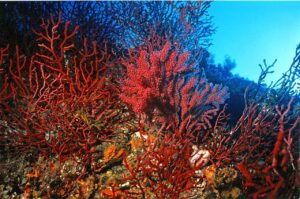Sharks are one of the most misunderstood species on the planet. They have fallen victims of a man-hungry identity shaped by the media (the “Jaws” image), that constantly depicts them as famish beasts that devour anything they encounter. Led by fear and by economic drivers, there is a general belief that our oceans are better off without them. Humans kill 100 million sharks a year, whereas sharks kill mistakenly between 5 to 15 people. Scientists now estimate that their population has decreased by 90% over the last century, putting at risk the survival of this pre-Jurassic species.
Ban Shark fishing in the EU #bansharkmeat
Sharks are usually apex predators in an ecosystem, meaning that they are on top of the food pyramid and there are few or none, species that prey on them. They control and limit the populations of their prey, which in turn affects the prey species of those animals and so on. Thus, sharks are responsible in helping to regulate and maintain the balance of a complex ecosystem full biodiversity.

Sharkmeat being sold in Italy
This explains why the removal of these large-fish predator from an ecosystem could result in a cascade effect: a large-scale influence on ocean ecosystems that threatens not only marine life but human’s economy dependent on fisheries. Ecosystems that have experienced a decline in shark population, saw a shift in species abundance which led to the decline of certain species lower in the “food pyramid” on which local fisheries depended upon. For example, certain US restaurants had to remove certain American classic dishes from their menu as an outcome of the aforementioned cascade effect that results from the removal of sharks from an ecosystem. If the decline of their population reaches a critical point, sharks won’t have an ecological function, leading to a possible and unpredictable collapse of the marine ecosystems. Sharks are now present as the largest group of threatened marine species on the IUCN Red List, however only three out of the 350 species of sharks are protected from the pressures of international trade. The other species are currently neglected and not yet prioritized despite them also being vulnerable species.
It is essential to protect all shark’s species and allow them to recover from overfishing. Governments worldwide have to ensure a reduction in shark by-catch in commercial fisheries by improving shark management and requiring strict species-specific fishing quotas and stock assessments. As individuals, we can reduce the demand for shark products such as the expensive shark fin soup or shark meat and make sure that our fish consumption doesn’t involve shark by-catch.
Article by: Yasmeen Zuffetti
Sources:
Griffin, N., Miller, K.L., Freitas, B., and Hirshfield, M. (2008) Predators as Prey: Why Healthy Oceans Need Sharks. Oceana













